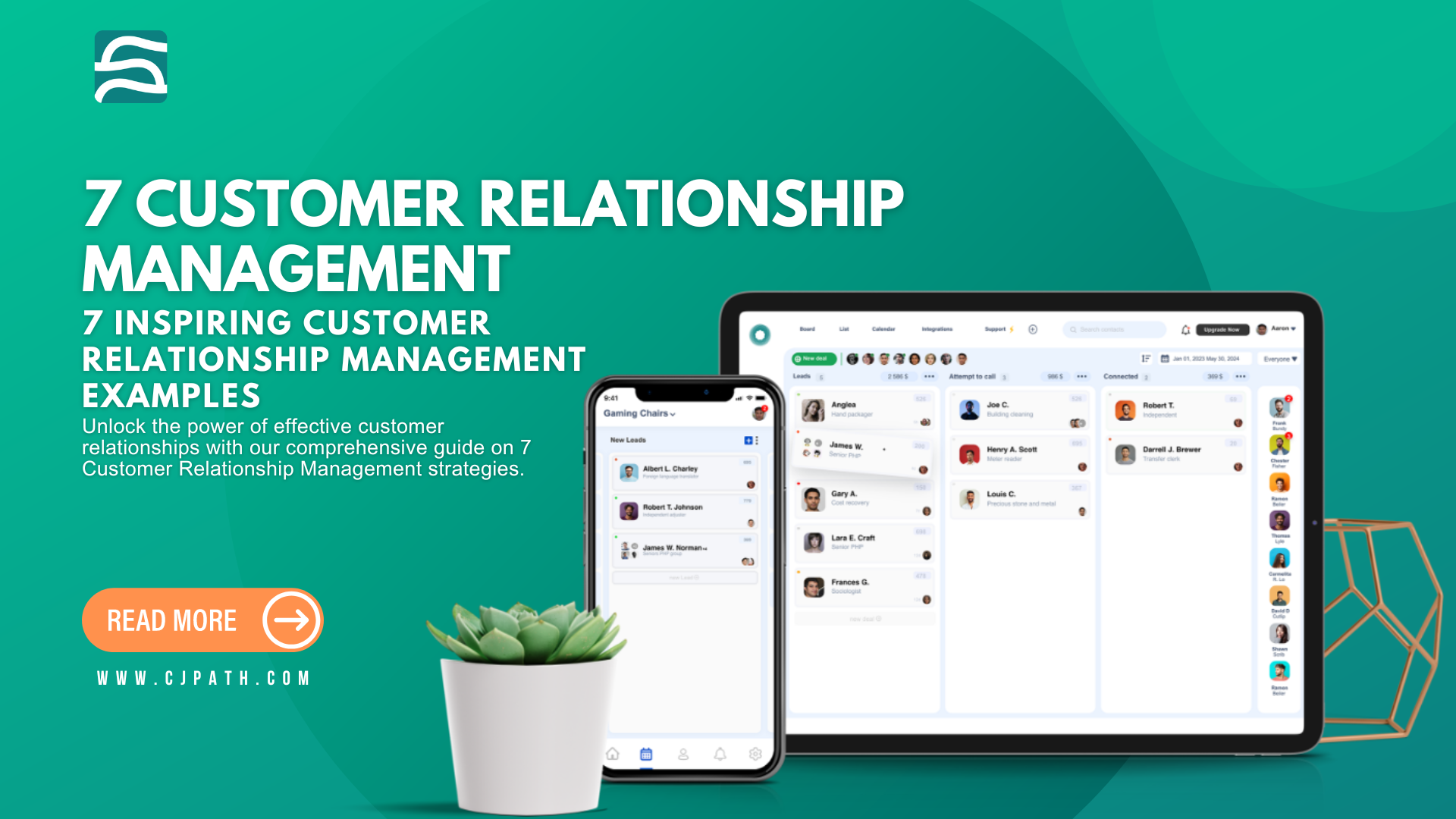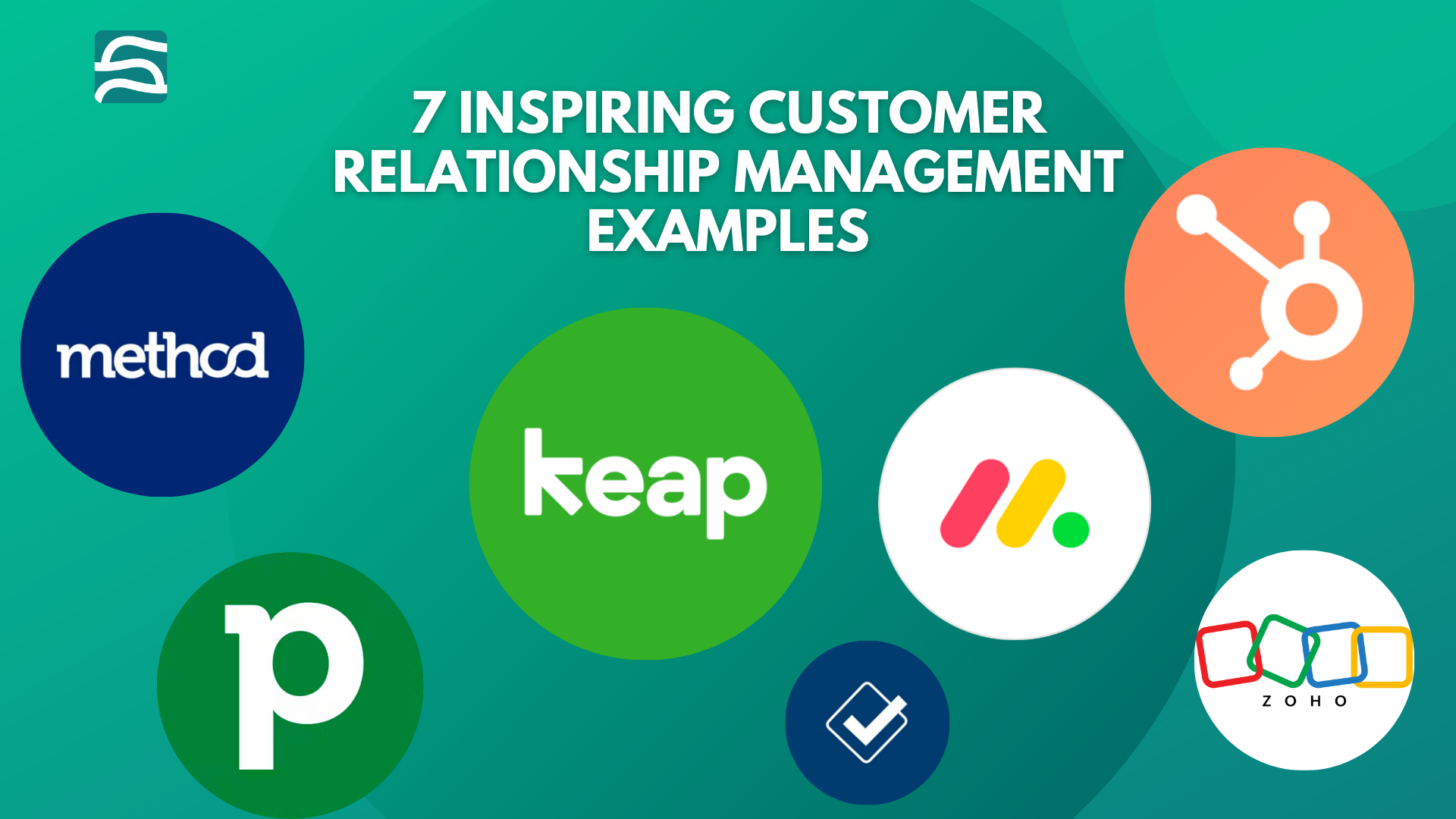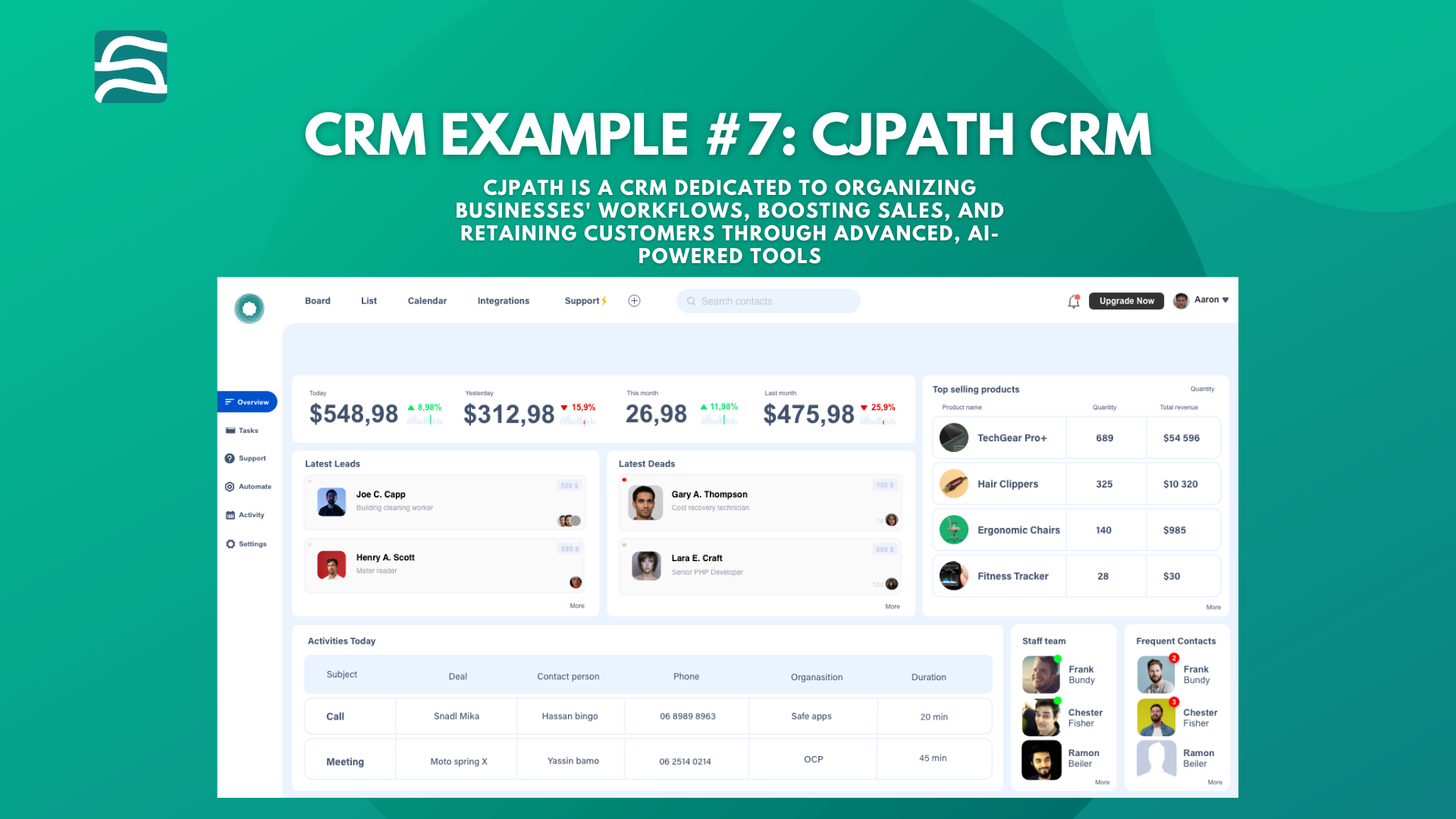
Customer relationship management (CRM) is a crucial aspect of any business.
It involves managing interactions with current and potential customers to improve customer satisfaction and retention.
With the right CRM strategies and tools, businesses can build strong relationships with their customers, leading to increased sales and revenue.
In this article, we will explore six inspiring customer relationship management examples that showcase the power and effectiveness of CRM in different industries.

CRM Example #1: Amazon
Personalized Recommendations
Amazon is a prime example of how effective CRM can lead to increased sales and customer loyalty.
The e-commerce giant uses customer data to provide personalized recommendations to its customers. By analyzing customer purchase history, browsing behavior, and demographics, Amazon is able to suggest products that are relevant and appealing to each individual customer.
This personalized approach not only improves the customer experience but also increases the chances of a sale.
According to a study by McKinsey, personalized recommendations can increase sales by up to 20%.
Efficient Customer Service
Amazon also uses CRM to provide efficient customer service. By tracking customer interactions and purchase history, Amazon is able to quickly resolve any issues or inquiries that customers may have.
This not only improves customer satisfaction but also saves time and resources for the company.
CRM Example #2: Starbucks
Loyalty Program
Starbucks has a highly successful loyalty program that is powered by CRM.
The coffee chain uses its mobile app to track customer purchases and offer rewards and personalized offers based on their preferences.
This not only encourages customers to return to Starbucks but also provides valuable data for the company to improve their offerings and marketing strategies.
Mobile Ordering
Starbucks also uses CRM automation to streamline the ordering process for its customers.
Through its mobile app, customers can place their orders and pay in advance, reducing wait times and improving the overall customer experience. This also allows Starbucks to collect data on customer preferences and behavior, which can be used to further personalize their offerings.
CRM Example #3: HubSpot
Lead Nurturing
HubSpot, a leading CRM roi and marketing automation platform, uses its own software to nurture leads and convert them into customers.
By tracking customer interactions and behavior, HubSpot is able to send targeted and personalized emails to potential customers, increasing the chances of a sale.
Customer Segmentation
HubSpot also uses CRM to segment its customers based on their interests and behavior.
This allows them to tailor their marketing efforts and provide relevant content to each segment, leading to higher engagement and conversions.
CRM Example #4: Zappos
Exceptional Customer Service
Zappos, an online shoe and clothing retailer, is known for its exceptional customer service.
The company uses CRM to track customer interactions and preferences, allowing them to provide personalized and efficient service. Zappos also has a 365-day return policy, which is made possible by their CRM system that tracks customer purchases and returns.
Social Media Engagement
Zappos also uses CRM to engage with customers on social media. By monitoring social media platforms, Zappos is able to quickly respond to customer inquiries and complaints, improving customer satisfaction and loyalty.
CRM Example #5: Coca-Cola
Personalized Marketing
Coca-Cola uses CRM to personalize its marketing efforts and connect with its customers on a deeper level.
By tracking customer data and behavior, Coca-Cola is able to create targeted and relevant campaigns that resonate with its audience. This has led to increased brand loyalty and sales for the company.
Customer Feedback
Coca-Cola also uses CRM to collect and analyze customer feedback. By understanding what their customers want and need, Coca-Cola is able to improve their products and services, leading to higher customer satisfaction and retention.
CRM Example #6: Tesla
Customer Data Analysis
Tesla uses CRM to analyze customer data and improve its products and services. By tracking customer interactions and feedback, Tesla is able to identify areas for improvement and make necessary changes to its products. This not only leads to higher customer satisfaction but also helps Tesla stay ahead of its competitors.
Automated Sales Process
Tesla also uses CRM to automate its sales process. By tracking customer interactions and behavior, Tesla is able to identify potential leads and target them with personalized marketing efforts. This has led to increased sales and revenue for the company.
CRM Example #7: CJPath CRM

CJPath CRM is a customer relationship management software that helps businesses manage their interactions with customers and improve customer satisfaction. It offers a range of features and tools to streamline customer communication, track customer data, and enhance the overall customer experience.
One of the key features of CJPath CRM is its contact management system. It allows businesses to store and organize customer information in a centralized database, making it easy to access and update customer details. This helps businesses keep track of customer interactions, preferences, and purchase history, enabling them to provide personalized and targeted marketing campaigns.
CJPath CRM also offers a ticketing system that allows businesses to efficiently manage customer inquiries and support requests. It enables businesses to track and prioritize customer tickets, assign them to the appropriate team members, and ensure timely resolution. This helps improve customer satisfaction by providing quick and effective support.
Another notable feature of CJPath CRM is its sales automation capabilities. It helps businesses streamline their sales processes by automating tasks such as lead generation, lead nurturing, and sales tracking. This allows sales teams to focus on building relationships with customers and closing deals, rather than spending time on manual administrative tasks.
Furthermore, CJPath CRM provides analytics and reporting tools that allow businesses to gain insights into their customer data. It offers customizable dashboards and reports that provide valuable information on customer behavior, sales performance, and marketing effectiveness. This helps businesses make data-driven decisions and optimize their CRM strategies for better results.
In conclusion, CJPath CRM is a powerful customer relationship management software that helps businesses improve customer satisfaction and streamline their sales processes. With its contact management, ticketing, sales automation, and analytics features, CJPath CRM enables businesses to build strong relationships with their customers and achieve their sales and revenue goals.
These six inspiring customer relationship management examples showcase the power and effectiveness of CRM in different industries. By leveraging customer data and using the right CRM strategies and tools, businesses can build strong relationships with their customers and achieve their sales and revenue goals. Whether it's through personalized recommendations, efficient customer service, or targeted marketing efforts, CRM can help businesses improve customer satisfaction and retention, leading to long-term success.

